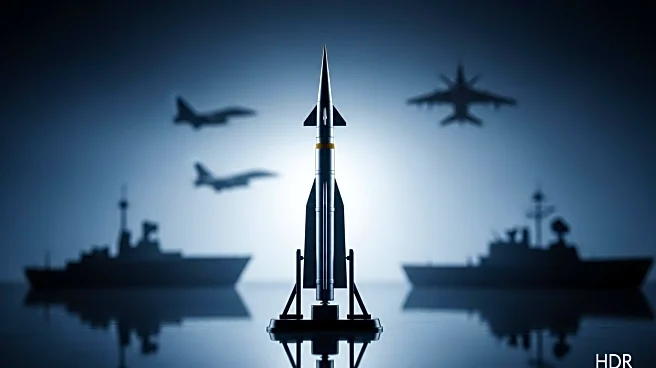What is the story about?
What's Happening?
North Korea has announced that its status as a nuclear weapons state is 'irreversible,' according to a statement from its Permanent Mission to the U.N. This declaration comes despite ongoing efforts by Western nations to negotiate the denuclearization of North Korea. The statement was released as the United States, South Korea, and Japan commenced joint military exercises, known as Freedom Edge 25, off South Korea's Jeju Island. These drills are scheduled to continue through September 19. North Korea's vice-chairman of the Central Military Commission, Pak Jong Chon, criticized the exercises, claiming they pose a significant threat to regional stability and escalate military tensions. The International Atomic Energy Agency (IAEA) has previously identified North Korea's nuclear development as a violation of U.N. Security Council resolutions, although North Korea maintains that the IAEA has no right to interfere in its internal affairs.
Why It's Important?
The declaration by North Korea solidifies its position in the global nuclear landscape, potentially complicating diplomatic efforts aimed at denuclearization. This development may increase tensions in the region, particularly as the U.S., South Korea, and Japan conduct military exercises that North Korea views as provocative. The situation underscores the challenges faced by international bodies like the IAEA in enforcing nuclear non-proliferation agreements. The ongoing military drills could further strain relations between North Korea and its neighboring countries, impacting regional security dynamics and potentially leading to an arms race in East Asia.
What's Next?
The joint military exercises by the U.S., South Korea, and Japan are expected to continue, potentially prompting further responses from North Korea. Diplomatic efforts may be intensified to address the heightened tensions and seek avenues for dialogue. The international community, including the IAEA, may explore additional measures to engage North Korea and address its nuclear program. Regional stakeholders will likely monitor the situation closely, considering the implications for security and stability in East Asia.
Beyond the Headlines
North Korea's assertion of its nuclear status raises ethical and legal questions about the effectiveness of international non-proliferation treaties and the role of global institutions in enforcing them. The situation may lead to a reevaluation of diplomatic strategies and the balance of power in the region. Long-term implications could include shifts in military alliances and increased investment in defense capabilities by neighboring countries.

















